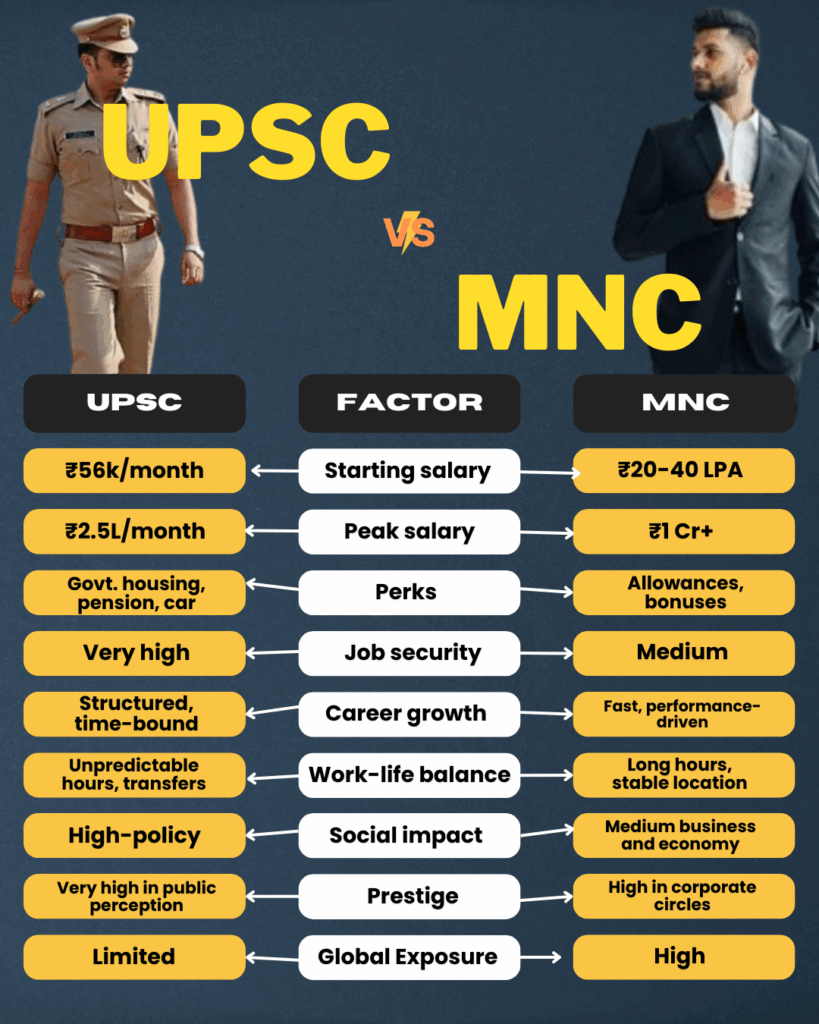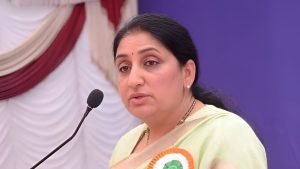What Happens When You Chase a Dream for 5 Years and Don’t Make It? The Untold Story of Unsuccessful UPSC Aspirants

When dreams are so big, you give up everything to chase them — the precious years of the prime of your life, money, career, relationships, and even health. But dreams don’t always come true, and when they don’t, they often leave shattered lives in their wake. So what do you do when you’re left with a broken dream after years of futile effort and sacrifice?
Such is the story of UPSC aspirants who don’t make it. Yet, this story also inspires — it reminds us to pick up the shattered pieces and begin building life all over again, because “Life Goes On…”
Every year, more than 10 lakh individuals across India set out with a singular goal—to crack the UPSC Civil Services Examination and earn one of the 1,009 coveted seats that lead to prestigious roles like IAS, IPS, or IFS officers. While the spotlight shines on the select few who make it to the final list, there is a far more common, yet lesser-told story—the story of those who give it their all and still don’t succeed.
This is not just about an exam. It is about a dream, often years in the making, and what happens when that dream remains unfulfilled.
The Harsh Reality: 10 Lakh Aspirants, 1,009 Selections
The odds are brutal. The UPSC exam is considered one of the toughest in the world—not only because of its academic rigor but because of the psychological weight it places on aspirants. Ritika Sharma (name changed), who recently attempted the exam for the third time, shared, “I couldn’t speak to anyone for two days. I just stayed in my room. I kept wondering—what now?” She, like thousands of others, had spent five years immersed in a journey marked by sacrifice, isolation, and relentless discipline.
The emotional fallout of not clearing the exam goes far beyond disappointment. It brings with it identity crises, financial uncertainty, and the challenge of rebuilding one’s sense of purpose.
The Psyche of Aspirants After UPSC Failure
Emotional Turmoil and Psychological Pressure
Failure in UPSC is often a personal earthquake. Aspirants typically forgo social lives, delay careers, and sometimes put relationships on hold in pursuit of a single goal. When that goal isn’t achieved, the resulting emotional void is immense. Depression, insomnia, appetite loss, and severe anxiety are frequently reported.
One aspirant confessed, “I could not sleep properly. Could not eat. It took weeks before I could follow a routine again.” Ritika Sharma, who attempted the exam five times unsuccessfully, admitted to contemplating suicide. “I was too tired to prove myself. I just wanted peace,” she shared, shedding light on the urgent need for emotional support systems for aspirants.
Coping Mechanisms and Rebuilding After Failure
Processing Emotions and Reframing Failure
Despite the pain, many aspirants find ways to recover, refocus, and even thrive. Mental health professionals and UPSC mentors encourage aspirants to grieve their loss, acknowledge their feelings, and slowly shift their perspectives.
“Failure should be seen as a stepping stone, not an end. Emotional resilience is built when aspirants accept their pain and learn from it,” says a guidebook for UPSC failures.
One coaching academy CEO remarked, “Every year, UPSC tests not just intelligence, but also resilience and character. Each attempt, whether successful or not, is an act of courage.”
Aspirants’ Perspectives: Stories of Grit and Reinvention
Resilience Despite Rejection
Kunal R Virulkar’s story has become legendary within UPSC circles—12 attempts, 7 mains, 5 interviews, and still no selection. But his viral post became a beacon of hope for thousands. His journey highlights an essential truth: the courage to persist matters as much as the outcome.
Learning and Moving On
For many, failure becomes a catalyst for growth. Aspirants learn from their mistakes, revise strategies, and prepare smarter. Others channel their efforts into different careers, using the discipline and knowledge gained during preparation.
“There is life beyond UPSC,” says one former aspirant turned entrepreneur. “The skills I learned—time management, analytical thinking, staying focused—have helped me succeed elsewhere.”
The Role of Mentors: Balancing Ambition with Realism
Mentors and teachers form the emotional backbone for many UPSC aspirants. From helping manage expectations to providing coping tools, they play a crucial role.
“It’s important to remind students that success in this exam is not the only marker of their worth,” says a civil servant-turned-mentor. He now offers free guidance to aspirants, focusing as much on mental health as academic preparation.
Coaching academies are also beginning to shift their approach. “We encourage students to have a Plan B, and also work on psychological resilience. Clearing UPSC is not everything—what you become in the process matters more,” explains another academy CEO.
Comparitive Analysis

What Separates the Selected From the Rest?
Experts agree that clearing UPSC is not solely about raw intellect. Here are some key differentiators:
- Discipline and Consistency: Daily routines, strict schedules, and timely revision are critical.
- Effective Strategy: Smart study plans, targeted mock tests, and time management make a huge difference.
- Mindset: Self-belief, emotional maturity, and the ability to handle failure with grace often set apart those who make it.
- Mentorship: Access to mentors and timely feedback significantly improve one’s chances.
Is UPSC Worth the Hype?
The UPSC Civil Services Exam is often seen as the gold standard of achievement in India. But is this prestige justified?
Yes, because:
- Purpose: It offers a deeply fulfilling chance to serve the country.
- Power and Impact: Civil servants influence policy and grassroots development.
- Diversity: It opens doors to roles in administration, police, diplomacy, and more.
But also no, because:
- Selectivity: The success rate is abysmally low.
- Mental and Financial Cost: Years can be lost with no tangible result.
- Glorification of Toppers: Society tends to equate success with selection, often ignoring the human effort of those who don’t make it.
Beyond Success and Failure: A New Narrative
The journey of a UPSC aspirant is transformative. It teaches discipline, self-awareness, and emotional strength. For the vast majority who don’t clear the exam, these lessons remain valuable.
“We salute not just the toppers, but every single aspirant who dared to dream and gave their best,” says a coaching head. “A missed attempt is not a failure. It’s a turning point—a moment that could lead to something even greater.”
Whether they clear it or not, UPSC aspirants embody the spirit of perseverance, learning, and hope. Their journeys deserve as much attention and respect as the final result.










